Sutherland: Movistar's goals are my goals
Australian sacrificing personal aspirations to be a good domestique
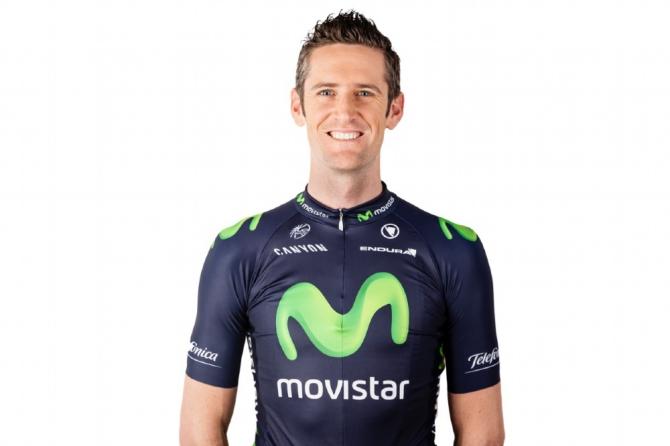
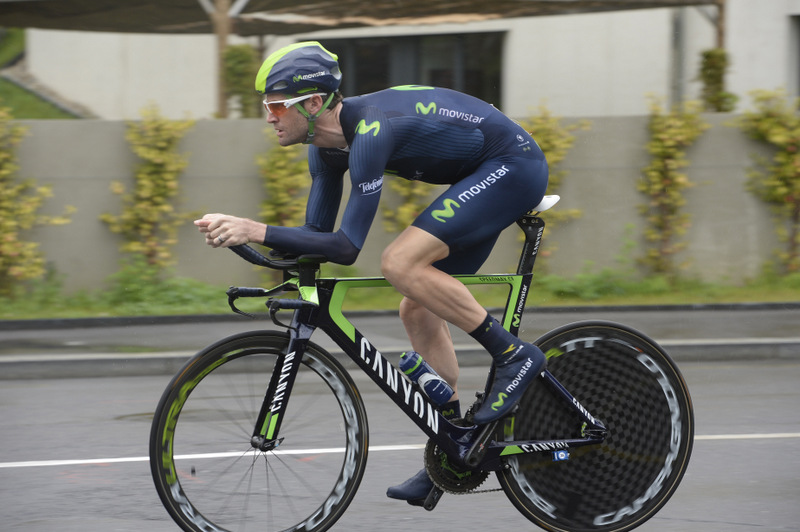
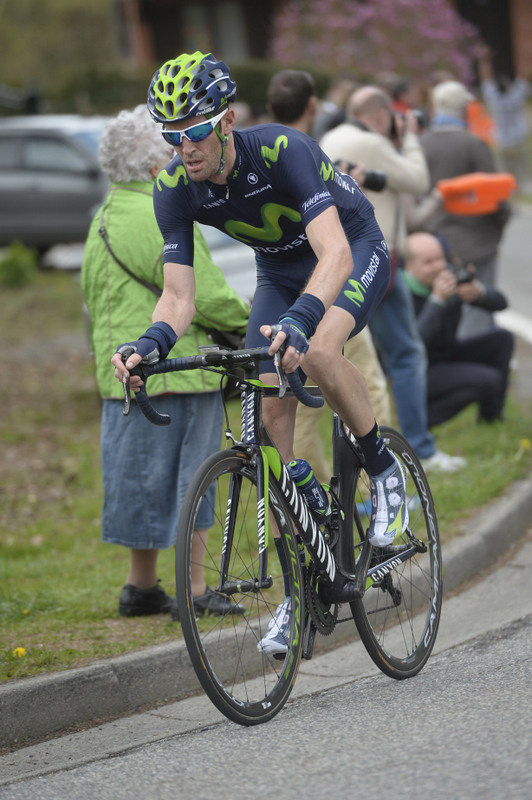
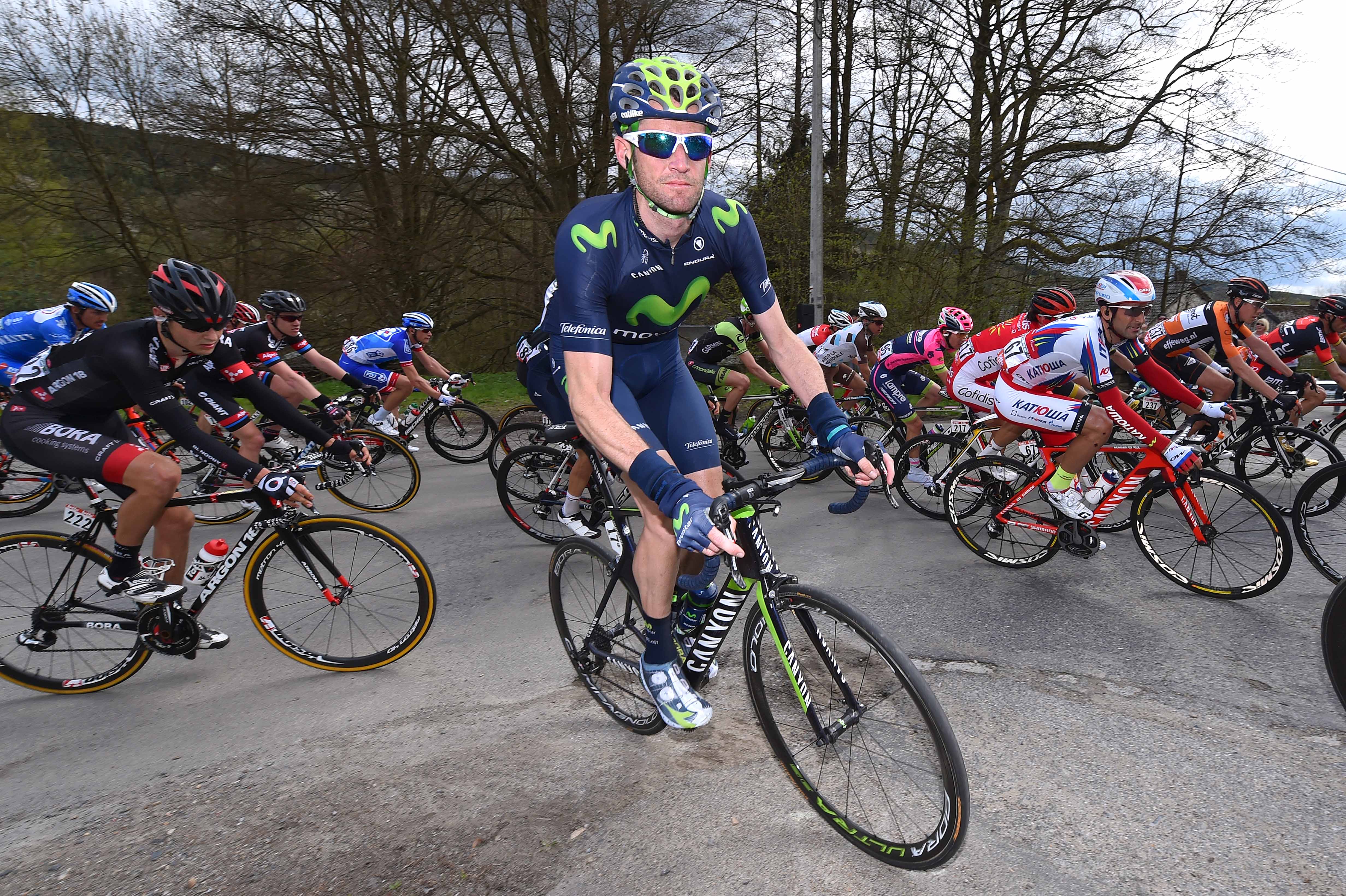
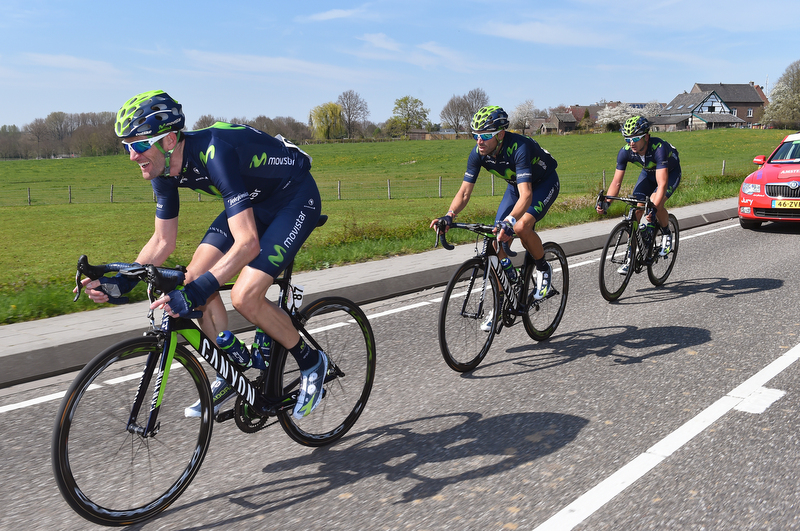
After racing for Russian, American and Dutch teams, since 2015 Australian veteran Rory Sutherland has become a valued team worker with Movistar in Spain, riding mainly for Alejandro Valverde. As their first training camp for 2016 drew to a close, Sutherland discusses why his goals are now the team's goals.
Cyclingnews: If I fast forwarded you 12 months, and you were in November 2016, what would you like to have achieved?
Rory Sutherland: For me it's different because I'll be 34 years old next year, and I think I've found something, here, a specific job which I feel is needed and respected. And for me, at my age, I think that is more important than money or anything else, that you are in a happy situation in a job that people respect you for doing.
So in terms of goals and inspirations, it's different to what it was a few years ago when you were still trying to find your path. Because that can take a long time, you're asking ‘can I get top ten in a Grand Tour? Can I get top ten in a Classic? Can I go for a podium?' It's not like you're giving up, it's about contentment, it's about finding a niche. You're respected because you're happy in that position.
I've seen enough for so many years; you have to be realistic. [You can say] ‘I'm not going win this, I'm not going to win that,' I can win races, but it's better to put the eggs in someone else's basket, like Nairo [Quintana] or Alejandro [Valverde] or any of the other guys. Us together have a better chance of winning than me trying by myself and them trying by themselves. So in terms of 12 months from now, I've worked a lot with Alejandro this year, and we have a really good working relationship and friendship, we seem to be pretty comfortable. I'm learning more and more about what he wants and where he wants to be in the peloton, it seems to work pretty well. So honestly, if he's had another good year, then I'm happy. It's pretty simple.
CN: So your goals are the team's goals?
RS: Exactly. If the communication remains good with Eusebio [Unzue, team manager] and we all remain on the same page about what the expectations are, and then there's no reason for any discontent on anybody's part.
Get The Leadout Newsletter
The latest race content, interviews, features, reviews and expert buying guides, direct to your inbox!
CN: You've got a contract for 2016, and after that?
RS: Yes, and then after that we'll re-assess the situation.
CN: In terms of races for 2016, what will you do?
RS: It's kind of up in the air at the moment. We get the opportunity to ask Eusebio about races, and I make [the Movistar management] laugh a bit because they give you a piece of paper with the races on it and ask you to circle what you want. Then I give it back to them, and I say, well, ‘I can do all of these races, it's more a question of where do I fit into your plan.' And where I fit in with that plan, that is completely fine with me.
CN: So for example, Alejandro will be doing the Giro next year…
RS: I'm going to the Tour Down Under, I'm the Australian on the team, and I want to go, it's a great race. And after that, specifically, I know I'll be back at the Ardennes Classics again, we have a really good group for that, it works well together, as we saw this year. So being part of that is something exciting, and then there's the question mark of the Grand Tours. I'll be doing at least one of them, possibly two. It depends on what Alejandro's plan is, what Nairo's plan is and seeing how guys are going, the parcours and so on. You [as a team worker] have to be open-minded and ready, hold a certain level of fitness rather than look for peaks along the way, a really good, steady form level so you can be put in different races.
CN: So you won't be looking to peak, say, for the Australian races?
RS: No. We [Movistar] go in with some goals, a few guys that are in good shape. But it's very early in the year, and I haven't seen anyone be able to maintain the form from then on. Someone like Rohan Dennis [BMC] did it by good management of backing off and then picking it up and coming back on. So we [Movistar] will go in there to Australia like we did this year, open-minded and with no-one specifically targetting it, and it worked.
CN: In terms of your overall condition, the way you approach training, have you changed much between this year's off-season and last year?
RS: We changed little things. I've been into sports science and understanding training. The team trainer Mikel Zabala and me, we've a really good relationship about improving different areas. [For example] I can't sprint as well as I once could because I don't have to, but it's still important to follow breaks or to put people into the right position in the peloton, so we're looking at more strength work in that regard.
But you know, everything changes by itself, you don't need to dramatically change everything in any case.
CN: Will your first race be the Australian Nationals?
RS: No. I've got my wife and two kids here [in Europe]. When you tack that time on, you're talking about the first race of the year, you have to be there a week before, then it's the Tour Down Under, and we're talking about three and a half weeks away. And when you lay the cards on the table, I'm always good at that [Australian road-race] circuit, but it's me versus 10 Oricas and three others. You've got to be realistic. So the first race of the season will be the Tour Down Under.
CN: How does it feel being the only Australian on the team?
RS: It's good because the Spanish people as a whole are very open and accepting. [But] this team specifically is probably a lot more difficult to crack into than other teams, because even if they are so much more open, it's a closed environment because of the language. A majority are Spanish, and a lot of the others are Italians who speak Spanish, too. But my Spanish is getting better every year, and the atmosphere in the team is one I really like and enjoy. That helps you fit in, whether you're Australian or from the States or wherever.
CN: [Retired rider] Neil Stephens is also someone Australian who ended up fitting in here [in Spain in the 1990s, as a team worker], have you talked much to him about it?
RS: Not much, we talk more because we're both from Canberra in Australia, same as Matt Hayman, Mick Rogers, Michael Matthews, it's a pretty select group of people. But I'm pretty good with that stuff now, I've been living away from home since I was 18 and I moved to Holland. I haven't lived in Australia since 1999 or 2000, I've been bouncing round the United States, Holland..So am I even Australian? [Laughs] I'm international now.
CN: So if I asked you to sum up your job in 30 seconds or a minute, how would you do it?
RS: I said it to Eusebio [Unzue] in the Vuelta, it's the same for me as it is for Imanol [Erviti]: both of us ride on the front from kilometre zero.
I don't mind, that's my job and I'll do that and I'll do that happily. With Alejandro, I think he enjoys my wheel in terms of the safety of it. I don't put him in places that he doesn't want to go and when it's crunch time I make sure that he's there. He doesn't need to worry, he can just sit there and think about the finale.
Whenever we're all together in the bunch, the teams are all lined up, and he or Nairo sits on my wheel because I'm bigger, I'm smoother, I don't change pace a lot, and I think about them. If I grab a musette at the feed zone, I'll tell Alejandro, 'I'll get it, you don't need to worry about it' - to worry about the risk of crashes going for a musette or whatever.
Being a helper, gregario or domestique or whatever you want to call it is a job that's not seen a lot but it's one you take a lot of pride in. It's respected because somebody wants your help and trusts you. And [in the peloton] it's not always like that.
Alasdair Fotheringham has been reporting on cycling since 1991. He has covered every Tour de France since 1992 bar one, as well as numerous other bike races of all shapes and sizes, ranging from the Olympic Games in 2008 to the now sadly defunct Subida a Urkiola hill climb in Spain. As well as working for Cyclingnews, he has also written for The Independent, The Guardian, ProCycling, The Express and Reuters.
